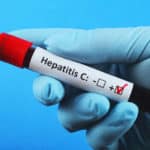Announcing: New Liver Transplant Option on the Horizon
Ex-rivals tackle acute liver disease – Vesta to produce cells for Cytonet
www.newsobserver.com
Sabine Vollmer, Staff Writer
Vesta Therapeutics, a small Durham company that is working on an alternative to liver transplants, announced Tuesday that it has gotten a contract to produce liver cells for German competitor Cytonet.
The therapies that Vesta and Cytonet are developing differ slightly. But both essentially target healthy liver cells for transplantation into patients with acute liver failure. The cells come from donated livers that were unsuitable as transplants.
Both companies hope that the contract is a step toward getting a therapy to market more quickly.
“Sometimes competitors get together and become friends,” said Christian Tidona, Cytonet’s head of business development.
Financial details were not disclosed.
Cytonet wants to explore whether a U.S. location makes sense, Tidona said. The deal could expand into a partnership or might even lead to Cytonet acquiring Vesta, he said.
Spun off by Swiss pharmaceutical company Roche in 2000, Cytonet is testing its therapy in humans. The company has about 50 employees.
The liver cells that Cytonet expects to receive from its contractor starting midyear will be used to determine how well Cytonet’s therapy works in patients.
Development of Vesta’s therapy isn’t as far along. Mark Johnston, Vesta’s president, said testing in patients is planned to begin this year.
Vesta is the Triangle remnant of Incara Pharmaceuticals, a once-promising Research Triangle Park company that held an initial public offering of stock in 1996. In 2002, cash-strapped Incara sold its liver cell therapy to Vesta. Incara changed its name to Aeolus Pharmaceuticals two years ago and moved its corporate headquarters to Laguna Niguel, Calif.
Since its inception, Vesta has raised more than $5 million in venture capital and research grants, Johnston said.
The contract with Cytonet provides revenue and allows Vesta to hire two lab technicians, increasing its work force to 14.







